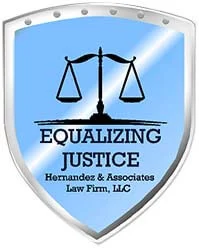WHY YOU SHOULD TAKE THE HIGH ROAD DURING DIVORCE
Divorces tend to be highly emotional. Sometimes, these strong emotions can bring out the worst in us.
If your feelings toward your ex include remorse, frustration, betrayal, anger, apathy or some combination of these, it may become difficult for you to act rationally. But, here are a few reasons why you should try to remain amicable during this process.
Mean comments can affect the judgment
In the age of over-sharing, it can be tempting to share negative feelings you have for your ex on social media. However, publicly badmouthing your ex can lead to an unfavorable ruling.
Whether what you say is true or not, choosing to publicly shame someone is not ethical behavior to model for children. Further, if you share children with your ex, the courts agree that it is in your child’s best interests to have a positive relationship with both parents. Mean-spirited comments about your ex may limit the time you’re granted in a custody agreement.
Even if you don’t have children, not holding your tongue may have its consequences. If you and your ex can be amicable, you may be able to compromise on property division matters. This can help both of you get more of what you want, rather than leaving it up to the default laws the courts use to make decisions.
Lengthy negotiations are costly
Drawing out negotiations is another issue that divorcing couples sometimes create for themselves. Arguing the value of menial items, demanding certain assets and contesting your ex’s right to an asset costs more time, money and energy than its worth.
Working with a competent lawyer can help you navigate when it makes sense to stand your ground and when it’s in everyone’s best interests to relent and move on.
Fair is fair
Remember that there’s no “winning” in divorce. Stop yourself from thinking of requests or demands you can make to negatively affect your ex. Divorce laws state that property division matters must be made equitably. When it comes to making custody decisions, these depend on the child’s best interests, not the parent’s best interests.
Instead of focusing on how much you can get from the divorce, try to think about what seems fair. Afterall, a judgment that is not fair will likely be brought back to court and rehashed, eventually costing you more time and money anyway.
If you seeing your ex making these mistakes, try to take the high road as often as possible. However, an experienced attorney can help guide you through what to do when an ex is making your divorce harder than it needs to be.

